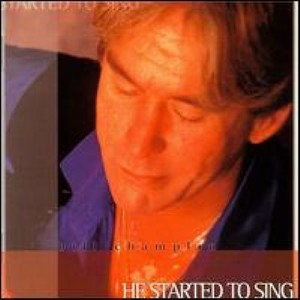
- 歌曲
- 时长
简介
by William RuhlmannBill Champlin, leader of the Sons of Champlin from 1965 to 1977 and a singer/keyboardist in Chicago starting in 1982, got a new lease on life, or at least on his intermittent solo career, in the early 1990s when he began to make recordings for Japanese firms. He Started to Sing, his second album for the Japanese Polystar label (licensed to other labels around the world) and fifth solo album overall, again allows him to do as he likes, as he makes clear in the title song, which leads off the disc. A companion piece and update to his 1982 song "Runaway" (which, in turn, was the title song and lead-off track of his second album), it is a musical autobiography written in the third person, telling the story of a man buffeted by other people's expectations who manages to become his own person. Just as "Runaway" described his decision to leave the Sons of Champlin and the Bay Area for a solo career in Los Angeles, "He Started to Sing" describes Champlin's liberation from the demands of pop commercialism: "Never again will he beg to be heard by the powers that be / Never again will he change all his words, cause he's gotta be free / He's been there before, and he's learned to ignore what they want him to see / He'll write down the truth, and he'll sing it to you, you don't have to agree." Having begun with such a statement of purpose, Champlin turns in his most musically varied collection. Unlike his previous album, Through It All, which relied primarily on synthesizers, He Started to Sing employs a large, familiar cast of session musicians and singers, and Champlin uses the company to try some different styles. "Love Is Gonna Find You," a duet with his wife Tamara Champlin, takes on jazz-rock fusion, while "Southern Serenade," their second duet (which they also co-wrote) is, as its title suggests, a gospel-influenced Southern Rock ballad in which an L.A. expatriate pays tributes to Southern roots. "God Sent Angels" is given a world music arrangement; "Sex Thang" boasts a funky bass introduction and jazzy horns; and the romantic ballad "Someone Else" has a largely acoustic setting, including a nice acoustic guitar solo by Champlin at the start. Under the heading of writing down the truth, "It's About Time" is a lecture directed at someone about the importance of freedom, while the most explicitly political statement comes in "Party Time in D.C." The latter song's music is very much influenced by the sort of jazz vocal style of Take 6 and the Manhattan Transfer. The lyrics may refer to the 1994 Republican takeover of Congress, and are among Champlin's most caustic: "Once again, the power will change hands / The winners have made plans / For the profit margin / Freedom always comes in last / It's gonna happen fast / Pretty soon it's gone." As the album's title implies, whatever the musical style, the dominant sound on the album is Champlin's voice, which ranges from the gritty, soulful approach he often takes on the rhythm tunes to a clean, crooning baritone on the ballads. Chicago, which constitutes Champlin's day job, may have retreated from the forefront of musical creativity, but He Started to Sing demonstrates that he continues to seek his own path as an individual.







